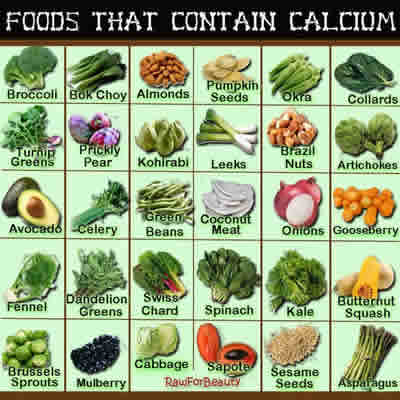The question of calcium supplements comes up from my clients, friends, and family members A LOT. Especially for those of us in perimenopause or menopause, the concern about osteoporosis has us convinced that we should be mega-dosing calcium supplements. We’ve been brainwashed to believe that if we don’t drink 5 glasses of milk per day our bones will fall apart (maybe I’m exaggerating a little). There is definitely truth to the fact that Americans by and large do not consume enough calcium – from kids to adults. There are multiple reasons for this:
- Poor absorption of nutrients due to low stomach acid, Vitamin D and K2 deficiency, irritable bowel conditions and other diseases like Celiac which impair absorption.
- Less available calcium in our vegetables due to depleted minerals in the soil with conventional farming practices.
- The Standard American Diet which is typically lacking in calcium-rich foods such as leafy greens, sardines, and traditional bone broths on one hand; and on the other, emphasizes inflammatory foods that create absorption problems.
- Assuming dairy is highly absorbed when in reality, the absorption rate for calcium from dairy is only about 30%.
Why we need calcium
Of course our bones and teeth need calcium, most of us are aware of this. Calcium is actually the most abundant mineral in the body! On top of this, our blood pressure and heart rate is dependent on proper calcium levels in the blood for proper function – it’s a very tightly regulated process by the brain. In order to keep this stable, if there is not enough calcium in the blood, the body pulls calcium from the bones and teeth to make up the difference. This can be a significant contributing factor to osteopenia and osteoporosis.
Optimal calcium levels also support other functions as well such as:
- Cellular immunity
- Nervous system and muscle function
- Blood sugar balance and health of the pancreas
- Healthy digestion
- Fat loss and weight management
For all these functions to work properly, we need not only enough calcium, but we also need bioavailable forms of calcium and the appropriate cofactors.
Bioavailable forms
In order for the body to have a chance at absorbing calcium it needs to be in a recognizable and bioavailable or “usable” form. Food sources are obviously the most absorbable, I recommend eating these foods for calcium:
- Wild Alaskan canned salmon in a BPA free can (the bones in the canned products contain great calcium)
- Wild caught whole sardines – in olive oil or spring water, BPA free cans
- Full fat, grass-fed dairy like yogurt or kefir
- Fresh or dried organic figs
- Okra
- High quality bone broth (see my recipe here)
- Leafy greens like collards, mustard greens, Swiss chard
- White/navy beans and kidney beans
- Black eyed peas
- Unhulled sesame seeds
- Almonds
- Kale (raw)
- Bok Choy
- Broccoli (raw)
- Sweet potato
What about supplements?
I have many clients tell me they take Tums for their calcium – this always makes me cringe as the calcium carbonate in Tums (and many other calcium supplements) is likely the least absorbable form of calcium. Most calcium supplements on the market come from limestone deposits – yep, in the form of calcium carbonate, calcium oxide and calcium chloride – all of which are difficult for the body to absorb and use. The more absorbable and usable supplement forms are high quality calcium citrate and microcrystalline hydroxyapatite complex (MCHC) especially for bone health. For these to work effectively it’s important to make sure the proper cofactors are on board as well. Space your calcium supplements throughout the day to avoid too much at once and limit supplemental calcium to less than 1,000mg/day and favor food over supplements as studies are showing supplements aren’t as effective as once thought and may be associated with increased risk of myocardial infarction and stroke.
Necessary Cofactors
In order to properly absorb calcium, it’s critical to have Vitamin D3 and Vitamin K2 on board. Vitamin D3 ensures your intestines effectively absorb calcium from your food and Vitamin K2 helps it find it’s way into your bones. If not absorbed properly, calcium can actually work against your health – it can deposit into soft tissue causing cysts, deposit in your kidneys causing stones, or deposit in your arteries and bind to oxidized LDL cholesterol which leads to plaque formation. Magnesium also supports bone remodeling and is essential for calcium to do its job effectively.
What to do
Eating a variety of whole foods with emphasis on calcium rich foods is my number one recommendation. For supplementing, I recommend either Jarrow Bone Up and Klaire Labs Cal Assimilate Plus (both available through my Fullscript portal), which contain high quality forms of calcium with required cofactors.


